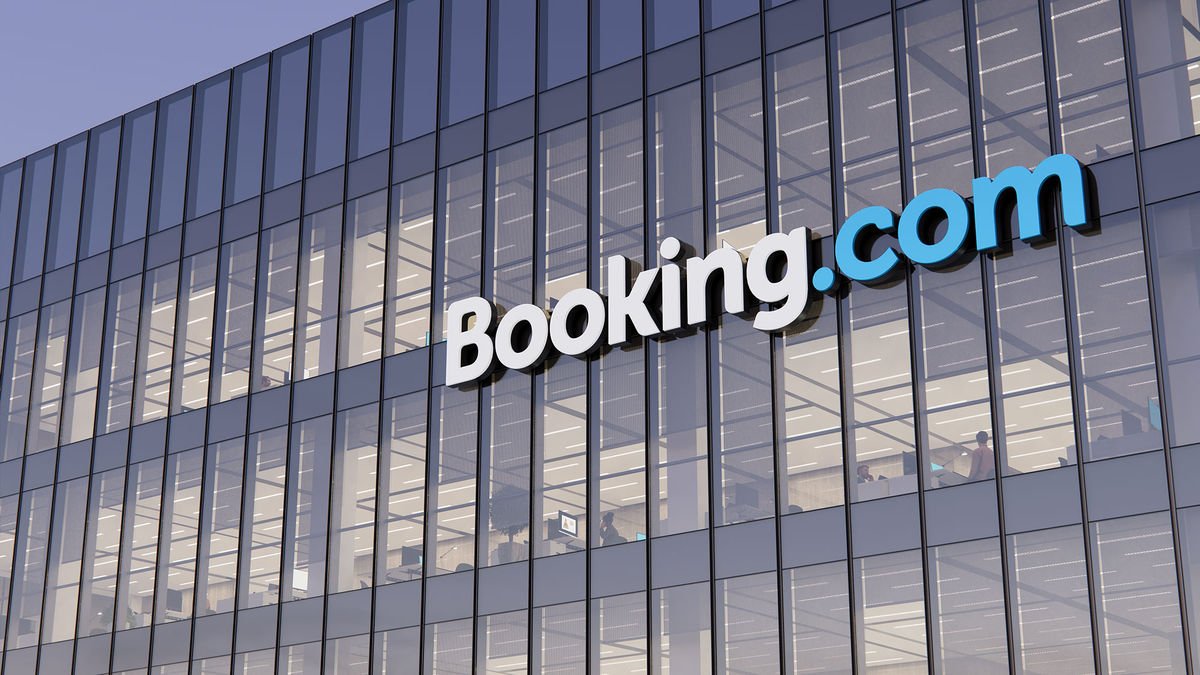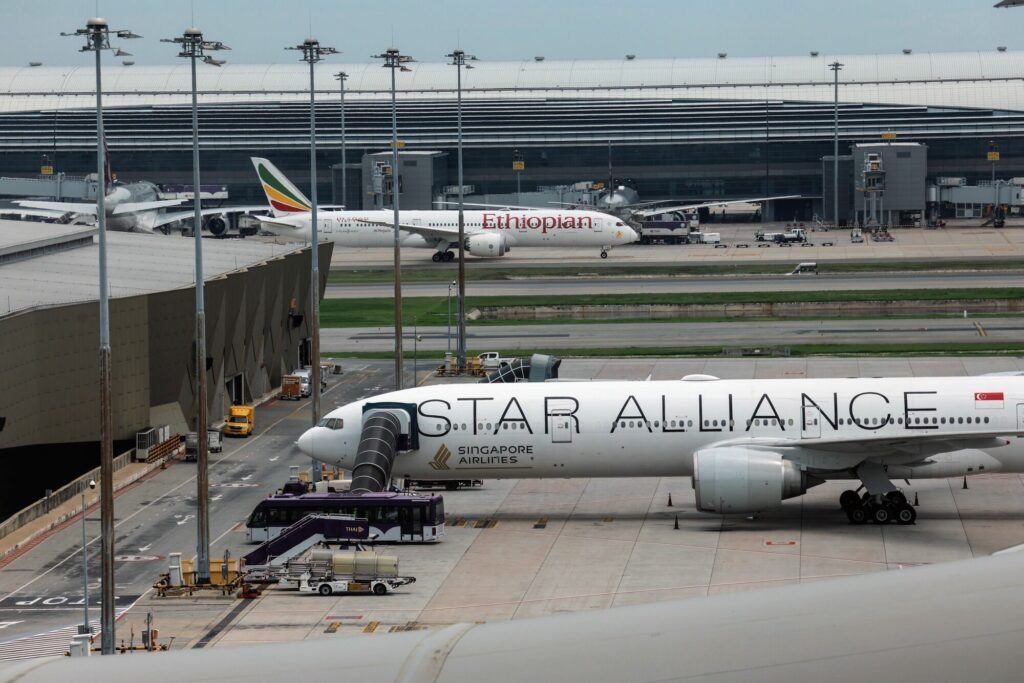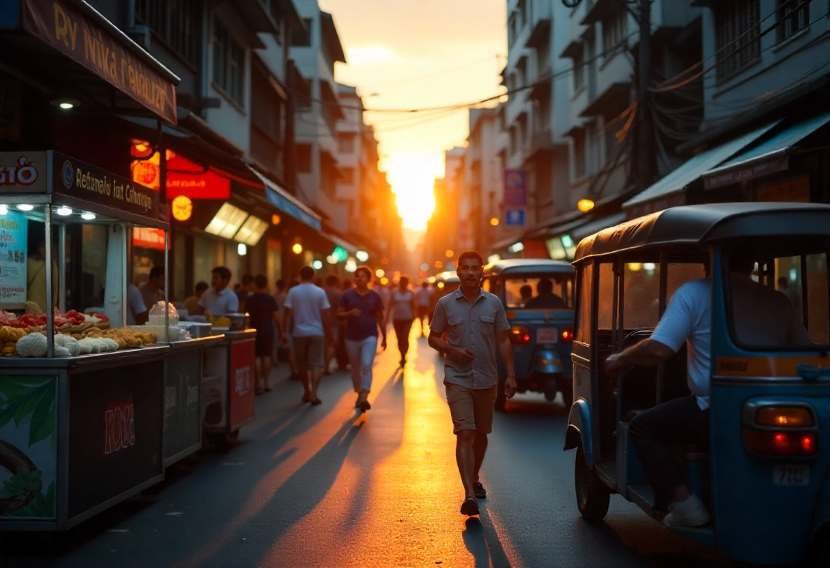Despite ongoing global uncertainty, Booking Holdings (No. 1 on Travel Weekly’s Power List) again reported positive results, exceeding its own expectations for the second quarter of 2025.
“We are pleased to report a strong second quarter with 8% room night growth and a double-digit increase in gross bookings and revenue, reflecting disciplined execution against our strategic initiatives,” Booking Holdings CEO Glenn Fogel said in the company’s earnings release.
Room nights rose to 309 million nights booked, up 8% compared to Q2 2024.
On an earnings call with analysts Tuesday night, Ewout Steenbergen, chief financial officer, attributed the rise to stronger than anticipated performance in Europe, Asia and the United States. The increase was approximately two percentage points higher than Booking Holdings’ guidance.
“We observed an impact in our rest of world region in June from the events in the Middle East, which we estimate impacted global growth by about 1% in June and one third of a percentage point overall in the second quarter,” he said.
“Europe was up high single digits, Asia was up low double digits, rest of world was up, high single digits and the U.S. was up low single digits.”
The U.S. continues to be Booking Holdings’ slowest growing region, but growth was slightly higher in the second quarter than the first quarter of 2025.
“In the U.S., we observe lower ADRs as well as a shorter length of stay and booking window,” Steenbergen said. “This may suggest that U.S. consumers are being more careful with spending in the current economic environment.”
Booking Holdings, which is parent to Priceline, Booking.com, Kayak, Agoda and OpenTable, among others, saw consistent trends in travel corridors as well.
Inbound travel to the U.S. was down year-over-year in Q2, impacted primarily by travelers in Canada and also, less significantly, travelers in Europe. The company also saw strong growth in the Canada to Mexico and Europe to Asia corridors.
Gross bookings totaled $46.7 billion, up 13% from the same period last year. Revenue was $6.8 billion, up 16% year-over-year (or 12% in constant currency) and adjusted EBITDA was $2.4 billion, up 28% year-over-year.
Marketing expenses, Steenbergen said, increased 10% year-over-year.
“Marketing expense as a percentage of growth bookings was a source of leverage compared to the second quarter of 2024 driven by lower brand marketing expenses as well as higher direct mix, partially offset by increased spend in social media channels and attractive incremental ROIs,” he said.
Even amid ongoing “uncertainty” Steenbergen said the company is increasing its guidance for the rest of 2025.
“Turning to the full year 2025 while we recognize there is still elevated uncertainty in the macroeconomic and geopolitical environment, we are pleased to see that global travel demand trends continue to be steady so far in the third quarter, given these trends and with improved visibility for the third quarter, which historically has been our largest revenue and profit quarter, we are increasing our full year guidance ranges at the midpoint, assuming recent effects rates for the remainder of the year,” he said.
The rise of the connected trip
Booking Holdings is also holding onto its connected trip vision — and it’s seeing results, particularly with the implementation of artificial intelligence (AI) across its business.
“We reached a milestone with connected trip transactions, where customers choose to book more than one travel vertical with us, representing a low double-digit share of Booking.com’s total transactions and up over 30% year-over-year,” Fogel said in an earnings release.
He said the connected trip results were driven by healthy growth across other verticals, including flight tickets, which were up 44%.
“We continue to make progress there towards our long-term vision,” Fogel said, on the call with analysts, adding that the connected trip adds more value for travelers and partners.
“To put it bluntly, we see greater loyalty in our customers who have purchased a connected trip,” Fogel said.
AI implementations are contributing to this success as well.
“We always know that the connected trip needs exceptional technology at its core. AI, in general, and now particularly gen AI, is propelling us closer to this vision. We are actively investing in advanced AI capabilities, accelerating our ability to meet the evolving needs of travelers and partners,” Fogel said.
Fogel outlined Booking’s AI developments through the quarter, including updates to Priceline’s AI assistant Penny to expand voice capabilities and allow for a rise in engagement and better conversion. Kayak also continued to work on Kayak.AI, the company’s test lab for AI, to improve personalization and conversation capabilities.
Fogel also said Booking is working to collaborate with leading companies in the AI space, including OpenAI, Microsoft and Amazon, specifically as they work on agentic developments.
“All these initiatives and others contribute interactively, synergistically, allowing us to deliver a better planning and booking experience for our travelers and bring incremental demand to our partners,” he said.
Booking Holdings transformation remains ongoing
Steenbergen gave an update on the company’s “transformation program,” which was announced last year.
He said the company had realized around $45 million in quarter savings from the “transformation program” in sales and other expenses.
“We expect the actions we have taken so far will enable approximately $350 million in annual run rate savings, which about $150 million is forecast to be realized this year consistent with our prior expectations,” he said.
During Q2, Booking Holdings incurred $38 million in transformation costs that were nearly entirely excluded from its adjusted results, he said.
“We continue to estimate the aggregate transformation costs will be about $400 to $450 million which is similar to one time the run rate savings we anticipate from executing the program,” Steenbergen said.
The update came after employees took to LinkedIn last week to comment on potential layoffs. In a statement to PhocusWire, Booking.com said it is working on its organizational structure.
“As part of a broader transformational program aimed at creating greater opportunities for innovation, improving efficiency and strengthening our long-term financial position, Booking.com is currently reviewing its organizational structure,” Booking.com said.
“While we are still going through consultation in a number of countries and no final outcomes can be shared yet, this is a proactive step to make sure Booking.com remains agile in a very competitive industry and keeps driving customer-centered innovation at pace.”
The organizational reconsideration comes after Booking Holdings said in December that it anticipated $450 million in annual savings would come as a result of its restructuring effort announced in November.
Source: PhocusWire





































You must be logged in to post a comment Login